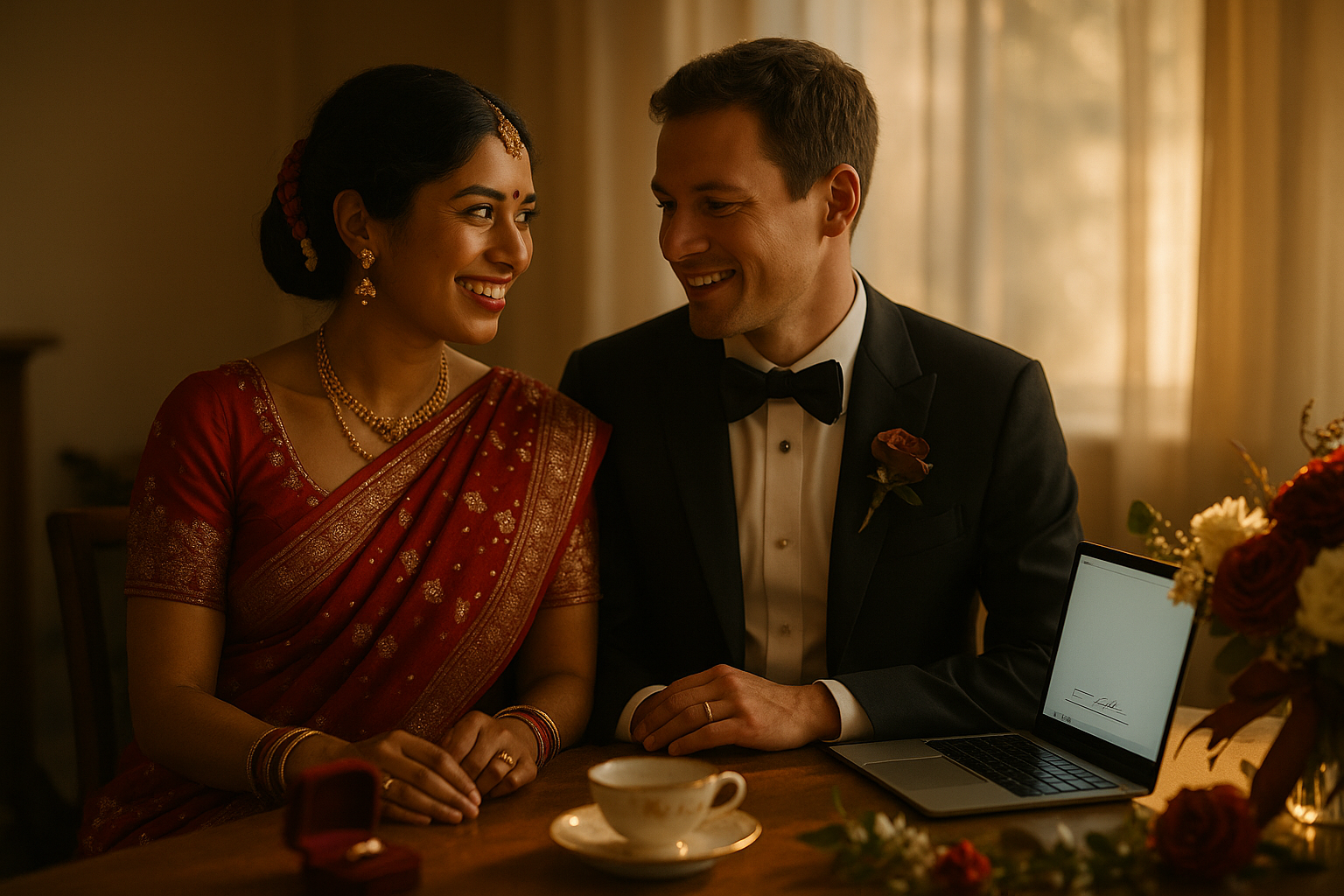In today’s interconnected world, couples are increasingly opting for virtual weddings to celebrate their unions. While these online ceremonies offer convenience and inclusivity, they also present unique opportunities to honor and integrate diverse cultural traditions. Blending legal requirements with cherished customs can create a meaningful and personalized virtual wedding experience.
Understanding the Legal Framework of Virtual Weddings
Before planning your virtual wedding, it’s essential to understand the legalities involved. Different jurisdictions have varying laws regarding online marriages. For instance, some states in the U.S. recognize virtual ceremonies, while others do not. Ensuring that your virtual wedding is legally binding requires thorough research and, often, professional guidance. Our How It Works page provides detailed information on navigating these legalities.
Incorporating Cultural Traditions into Your Virtual Ceremony
Integrating cultural traditions into your virtual wedding adds depth and personal significance to the event. Here are some ways to do so:
1. Traditional Attire
Wearing traditional clothing can honor your heritage and add visual richness to your ceremony. Even in a virtual setting, dressing in cultural attire can make the occasion feel special and authentic.
2. Rituals and Ceremonies
Many cultural rituals can be adapted for virtual platforms. For example, the Celtic handfasting ceremony, where a cord is tied around the couple’s hands to symbolize unity, can be performed online with the assistance of a local officiant or family member. This adaptation allows couples to maintain meaningful traditions despite physical distances. Learn more about handfasting in virtual weddings from the American Marriage Ministries.
3. Music and Dance
Incorporate traditional music and dances into your virtual reception. Share playlists of cultural songs with your guests or organize a virtual dance session featuring traditional dances. This not only honors your heritage but also engages your guests in a fun and interactive way.
Engaging Family and Friends in Cultural Practices
Involving your loved ones in cultural traditions can enhance the communal feel of your virtual wedding. Here are some ideas:
1. Virtual Tea Ceremonies
In Chinese culture, the tea ceremony is a significant ritual symbolizing respect and gratitude. This can be conducted virtually, allowing family members to participate from different locations. For more insights on incorporating cultural traditions, visit Michelle Leo Events.
2. Storytelling and Blessings
Invite family elders to share stories, blessings, or traditional readings during the ceremony. This not only honors cultural practices but also strengthens familial bonds.
Overcoming Challenges in Virtual Cultural Integration
While blending cultural traditions into a virtual wedding is rewarding, it can present challenges such as coordinating across time zones or ensuring technological accessibility for all guests. Planning ahead and utilizing user-friendly platforms can mitigate these issues. Additionally, providing clear instructions and support for less tech-savvy participants ensures inclusivity.
FAQs
Q: Are virtual weddings legally recognized?
A: Legal recognition of virtual weddings varies by jurisdiction. It’s crucial to research local laws and consult with professionals to ensure your ceremony is legally binding. Our How It Works page offers guidance on this topic.
Q: How can we include guests who are unfamiliar with virtual platforms?
A: Provide clear instructions and offer a test run before the ceremony to help guests become comfortable with the technology. Assigning a tech-savvy friend or family member to assist can also be beneficial.
Q: Can we perform traditional rituals virtually?
A: Yes, many traditional rituals can be adapted for virtual settings. For example, handfasting ceremonies can be conducted online with the assistance of a local officiant or family member. Learn more about this adaptation from the American Marriage Ministries.
Q: How do we handle cultural attire in a virtual wedding?
A: Wearing traditional attire during your virtual ceremony honors your heritage and adds visual significance. Encourage guests to dress in cultural attire as well to enhance the communal experience.
Q: What are some ways to incorporate cultural music and dance?
A: Share playlists of traditional songs with your guests and organize virtual dance sessions featuring cultural dances. This engages your guests and honors your heritage.
Conclusion
Blending cultural traditions with the legal aspects of a virtual wedding allows couples to create a ceremony that is both meaningful and compliant. By thoughtfully incorporating rituals, attire, and family involvement, you can honor your heritage while embracing the modern convenience of virtual platforms. For personalized assistance in planning your virtual wedding, feel free to contact us at Virtual Same Day Marriage. We’re here to help you create a celebration that reflects your unique love story.



